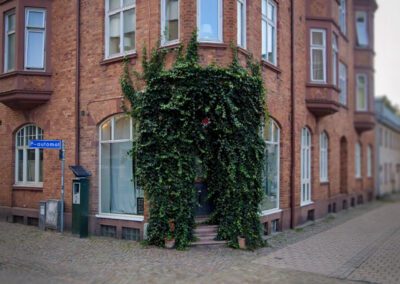Introduction
Events
“No matter how uncomfortable you may feel in the present moment, you can never escape it. The present moment is what constitutes your life. The first step is to accept that.”
Common Questions
What is non-dual meditation?
Meditation is simply resting in awareness—not as something to attain, but as what is already here. It is not about controlling the mind, reaching a higher state, or becoming someone different. Rather than an effort to achieve something, meditation is the natural openness of being, free from grasping or resistance.
In meditation, nothing needs to be rejected. Thoughts come and go, sensations rise and fall, but awareness itself remains untouched. Just as the sky is never affected by the clouds passing through it, meditation is the space in which all experiences appear and disappear without disturbance. It is not about silencing the mind—it is about noticing that awareness is present, whether the mind is silent or active.
How does non-dual meditation differ from mindfulness or concentration practices?
Mindfulness and concentration involve directing attention. You focus on the breath, sensations, or thoughts, assuming an observer that watches experience. Non-dual meditation has no observer, no focus, no direction. It is the complete dropping of the illusion that there is someone separate who needs to meditate.
What is Atma-Vichara (self-inquiry)?
Atma-Vichara, or self-inquiry, is not a method to find answers—it is a way to see through illusions. It does not ask you to build knowledge, improve yourself, or reach a certain state. Instead, it invites you to look directly at the one who is seeking, the one who suffers, the one who longs for freedom.
The simplest question of self-inquiry is:
“Who am I?”
Not as a thought, but as a direct experience. Who is aware of this moment? Who is experiencing life? If you look for yourself, what do you find?
At first, the mind may try to answer: “I am this body, this name, this history.” But these are just thoughts—objects appearing in awareness. Look deeper. If you are not your thoughts, not your emotions, not your body, then what remains?
Self-inquiry is not about arriving at an answer—it is about seeing what has never changed. Everything that comes and goes cannot be you. What remains when all appearances fade? That which cannot be lost, that which was never born and never dies.
Atma-Vichara does not give you something new. It reveals what was always here. The seeker disappears, and only awareness remains.
What are the obstacles in non-dual meditation?
The greatest obstacle to non-dual awareness is belief in separation—the deeply ingrained conviction that you are a separate person moving through life, bound by past and future. This belief keeps the mind engaged in endless thoughts about “me and my story,” reinforcing a false sense of identity.
Another major obstacle is ignorance, but not ignorance in the way people usually think. It is not about lacking knowledge—it is about believing that you already know. The egoic mind insists that it understands who it is, what the world is, and how things should be. This assumption creates resistance to true seeing. When you think you know, you stop looking.
Fear also plays a central role. There is a fear of losing control, a fear of uncertainty, and at the deepest level, a fear of dissolving—the fear that if you let go of identification, you will cease to exist. The ego fights for survival, even though it is only a mental construct. But what is there to protect if the one trying to hold on is just a thought?
These obstacles do not need to be “removed.” They only need to be seen. The moment you recognize that all these barriers exist only in the mind, they lose their weight. You do not have to struggle against ignorance, fear, or belief in separation—just stop taking them as real, and they fall away on their own.
How do I integrate non-dual meditation into my daily life?
Non-duality is not something to “apply” to life—it is already here. The mind believes it must adjust itself, shifting between roles, managing life as if it were separate. But who is doing all this adjusting?
Integration happens when you stop interfering. Trust that who you are does not need calibration. Being flows naturally, like water around a stone—it does not need help.
Let life unfold without resistance. The Stillness you seek has never been absent.
Does non-duality mean rejecting the world?
The mind creates the illusion of separation—it sees itself as here and the world as out there. And from this false division, conflict arises. Some believe the world must be rejected to find truth, while others insist on fixing it before turning inward. But both are rooted in the same misunderstanding.
You do not need to reject the world. You only need to see it clearly. The struggle comes from believing in duality—believing that you are separate from life, that there is something “out there” to resist or control. But before trying to change or reject the world, first, come to know yourself.
When the sense of separation dissolves, the question of rejection disappears. The world is not something outside of you—it is part of the same Stillness, the same awareness. Ignorance makes the world seem like an obstacle, but clarity reveals that nothing was ever divided to begin with.
What Is the Difference Between Non-Duality and Vedanta?
Non-duality is not a philosophy or tradition—it is simply what is. It is not something to believe in, study, or practice. It is the direct recognition that awareness is already whole, that nothing is separate, and that truth is not something to attain but what has never been absent.
Vedanta, particularly Advaita Vedanta, is one of the clearest and most direct expressions of non-duality. It provides a framework, scriptures, and teachings that help point to the reality of oneness. Through texts like the Upanishads, the Bhagavad Gita, and the teachings of sages like Adi Shankara and Ramana Maharshi, Vedanta offers a structured way to guide the mind toward realization.
But realization itself is beyond all systems. The words of Vedanta may help undo false identifications, but truth does not belong to any philosophy. Non-duality does not require a tradition—it is not something you learn, but what you are.
How does non-dual meditation deal with devotion?
At first, devotion and non-duality may seem like opposites—one directed toward something higher, the other dissolving all separation. But true devotion is not about worshiping something outside yourself. It is the natural softening of the heart when the illusion of separation fades.
In non-dual meditation, there is no “other” to direct devotion toward. Yet, as the sense of individuality dissolves, what remains is an overwhelming sense of love, reverence, and surrender. Not toward a person, a deity, or an idea, but toward life itself—toward the simple, undeniable presence of being.
True bhakti (devotion) is not about reaching for something distant. It is the recognition that nothing has ever been separate, and in that recognition, love flows effortlessly.
Does Tantra have a role to play in the practice of non-dual meditation?
Tantra, in its essence, is about embracing life fully—seeing everything as an expression of the same awareness. It does not reject the world, the body, or the senses but uses them as pathways to realization. In this way, Tantra can be a powerful complement to non-duality, because it leaves nothing outside of truth.
For many, the idea of non-duality can become abstract—something distant, something to be realized in silence or deep meditation. Tantra brings this recognition into direct experience, showing that Stillness is not separate from movement, that form is not separate from emptiness.
Rather than fighting against thoughts, emotions, or sensations, Tantra allows them to be fully seen, fully felt—until the idea of separation dissolves. Desire, fear, joy, pain—everything can be met with openness, until nothing remains to resist.
But Tantra is not about indulgence. It is about deep intimacy with what is—not avoiding, not grasping, just allowing all things to be what they are, without losing oneself in them. When this is seen, what remains is the same non-dual awareness, untouched and ever-present.
Your non-dual talks are sometimes referred to as Satsangs. What is a Satsang?
The word Satsang comes from Sanskrit—”Sat” means truth, and “Sang” means gathering or association. Traditionally, Satsang refers to sitting in the presence of a teacher or spiritual community, but its deeper meaning goes beyond any physical gathering.
Satsang is not about receiving knowledge or collecting spiritual ideas. It is a space where all illusions are exposed, where the restless mind is invited to stop searching and simply rest in what has always been here.
It is not a meeting of people—it is a meeting with truth itself. Words may be spoken, but the real teaching is not in the words. It is in the Stillness between them, in the direct experience of awareness.
You do not come to Satsang to get something. You come to see that nothing was ever missing.




